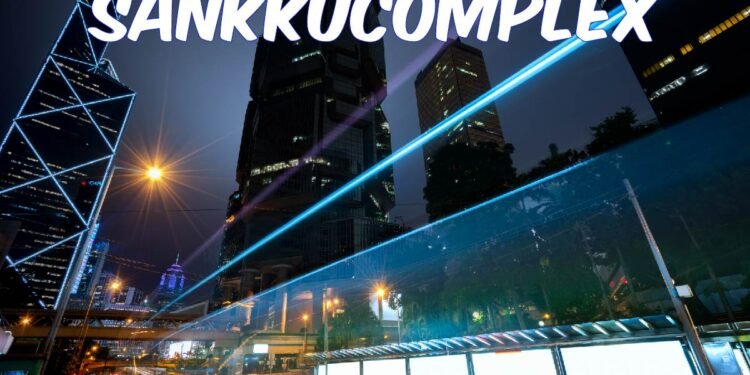Introduction
Sankkucomplex is a modern, emotionally resonant concept that captures the psychological friction surrounding singlehood. The word blends “Sankku”—a slang term for “single” in Finnish and Japanese—with “complex,” which refers to an emotional or social burden. While simple on the surface, this fusion reveals layers of anxiety, self-worth issues, and social expectations that arise when individuals feel out of sync with relationship-centric norms. In today’s hyper-connected world, many people internalize the idea that being single equals being incomplete. This emotional tension, especially visible online, has led to the widespread acknowledgment of Sankkucomplex across forums, media, and psychological circles. People experience it not as a medical disorder but as a real emotional and cultural identity conflict shaped by digital validation loops, societal milestones, and relationship-centric narratives. The growing use of the term in pop philosophy, memes, and self-help content highlights its relevance in today’s social and emotional climate.
Origin and Evolution of Sankkucomplex
From Finnish Slang to Global Self-Reflection
The term Sankku originates from casual Finnish slang, where it means “single.” Interestingly, Japanese youth also use “Sankkyu” as a phonetic variant of “Thank you,” which creates a wordplay bridge between solitude and gratitude. Over time, this playful duality evolved across cultures and online forums into a label for those feeling social or emotional unease due to singlehood. Initially used humorously in fan fiction and anime circles, the term expanded globally through meme culture and subcultural conversations. In English-speaking online spaces, Sankkucomplex grew into a phrase that signals deeper concerns: anxiety about time, identity, self-worth, and social acceptance in the absence of romantic relationships.
The Internet’s Role in Shaping the Term
The internet played a crucial role in embedding Sankkucomplex into pop culture. Platforms like Reddit, Discord, 4chan, and Tumblr amplified the phrase through relatable memes and self-deprecating humor. It joined the ranks of terms like “forever alone,” “FOMO,” and “hikikomori”—all tied to digital loneliness and social alienation. Threads and chats offered real-time confessions and solidarity among those experiencing relationship FOMO, societal rejection, or emotional flatness. This meme-fueled virality turned a niche phrase into a global identifier for people navigating modern life without a partner, making Sankkucomplex a true internet-born phenomenon.
The Psychology Behind Sankkucomplex
Fear of Missing Out and Internalized Expectations
FOMO—fear of missing out—acts as a major fuel source for Sankkucomplex. People constantly compare themselves to peers celebrating anniversaries, engagements, or family milestones. Dating apps intensify this by creating a loop of endless validation-seeking and instant rejections, further eroding self-worth. Each swipe becomes a reflection of social value. This cycle results in internalized expectations: if one is still single, then something must be wrong. Over time, this cognitive distortion becomes a self-fulfilling emotional trap.
Social Comparison and Online Loneliness
Curated lives on Instagram, LinkedIn, and TikTok fuel unhealthy comparisons. Seeing people your age getting married, buying homes, or having kids makes your life feel behind—even if it’s not. This leads to parasocial envy—feeling inferior to people you’ve never met. The spiral grows deeper when your timeline feeds couple content during holidays, leaving you isolated. Sankkucomplex thrives in this distorted digital environment where comparison outpaces compassion.
Identity, Shame, and the Single Deficit Myth
Our early upbringing often links self-worth with being chosen by a partner. Cultural norms reward those in relationships, reinforcing the idea that love validates existence. This conditioning feeds a toxic belief system: being single means being undesirable. Over time, this evolves into internalized shame—a hallmark symptom of Sankkucomplex. Schema therapy identifies these belief patterns as “defectiveness” or “social isolation” schemas. These deep-rooted emotional scripts create guilt around enjoying life as a single person, forcing one to chase external validation instead of cultivating internal peace.
Cultural and Demographic Contexts
The Nordic Experience of Single Living
Finland, where “Sankku” originates, has some of the highest solo living rates globally. Yet paradoxically, people in Nordic countries still report loneliness. Independence is celebrated, but emotional support structures are often weak. This duality—freedom with a side of isolation—creates fertile ground for Sankkucomplex. It’s not the absence of relationships that hurts, but the absence of emotional connection.
Western vs Eastern Expectations Sankkucomplex
In the West, singleness is often viewed as a phase of exploration or self-discovery. Meanwhile, in East Asian cultures like Japan, social pressure to marry and conform is intense. Sankkucomplex manifests differently across these regions: guilt and rebellion in the East, anxiety and performative independence in the West. Globalization is blending these pressures, making Sankkucomplex a shared emotional experience.
Generational Gaps in Relationship Norms
Older generations see marriage and family as milestones of success. Boomers, for example, often view single people as unfulfilled. But Gen Z and Millennials are increasingly choosing singlehood intentionally. The rise of “single positivity,” platonic partnerships, and co-living spaces shows that society is evolving. Still, the lingering shadows of older norms continue to breed Sankkucomplex in those caught between the two worlds.
Signs You Might Be Experiencing Sankkucomplex
Do you feel lonely at weddings or during holidays? Are you compulsively swiping on dating apps for ego boosts? Do you find yourself saying things like, “What’s wrong with me?” because you’re single? These are classic signs of Sankkucomplex. Other symptoms include obsessive comparisons, feeling ashamed to attend events solo, or constantly fantasizing about being in a relationship as a life fix. If any of these feel familiar, you’re not broken—you’re navigating a social script that needs rewriting.
The Benefits of Being Single
Radical Freedom and Self Definition Sankkucomplex
Being single offers unmatched freedom. You can move cities, change careers, or travel the world without negotiating your choices. This isn’t just convenience—it’s liberation. Sankkucomplex distorts this freedom as emptiness, but in reality, it’s the foundation for self-authorship.
Emotional Growth and Resilience Sankkucomplex
Solitude allows emotional space for reflection and healing. You can explore your patterns, work through trauma, and develop emotional resilience. Instead of relying on a partner to complete you, you complete yourself—on your terms.
Stronger Friendships and Chosen Families
Single life makes room for building deep friendships and chosen families. These connections, though non-romantic, offer emotional security, laughter, and companionship. Sankkucomplex fades when we realize love is not confined to romantic partnerships.
How to Overcome Sankkucomplex
Reframe the Story You Tell Yourself
Change begins with mindset. Shift from “I’m left behind” to “I’m consciously single.” This narrative empowers rather than victimizes. It’s not loneliness—it’s intentional living.
Build Social Circles That Normalize Singleness
Join communities where singleness is celebrated, not pitied. Book clubs, solo travel groups, and single-positive forums offer support and shared identity. Exposure heals.
Cut the Comparison Cord Sankkucomplex
Unfollow accounts that trigger inadequacy. Follow diverse stories that reflect your lifestyle. Social media curation is a form of emotional hygiene.
Prioritize Daily Emotional Hygiene
Practice journaling, movement, meditation, and therapy. These tools ground your self-worth in action, not status.
The Role of Media in Shaping the Complex
Film and Romance Tropes That Harm
Media reinforces the belief that a romantic ending equals a successful life. This narrow formula breeds Sankkucomplex by making single lives appear incomplete. We need more stories that validate wholeness without romance.
Social Media’s Algorithmic Bias Toward Coupledom
Wedding reels, “relationship goals,” and romantic memes dominate feeds. Algorithms reward them, making solo lives invisible. This bias erodes self-worth unless actively challenged.
Growing Counter-Narratives of Single Empowerment
Thankfully, there’s a rising tide of content celebrating independence: solo travel, self-love journeys, and #SingleNotSorry posts are rewriting norms. These counter-narratives are crucial for dismantling Sankkucomplex.
Sankkucomplex in the Workplace
Invisible Bias Against Singles Sankkucomplex
Many workplaces schedule around “family obligations,” excluding single workers from empathy and flexibility. Events often assume you have a partner. This reinforces Sankkucomplex by implying your life is less complex.
Redefining Success Beyond Domestic Metrics
Why should career goals be less valued than romantic ones? Achievement exists in many forms. Recognizing solo victories creates emotional equality.
Workplace Inclusion for All Life Structures Sankkucomplex
Progressive companies now offer inclusive benefits: pet leave, therapy stipends, or coverage for chosen families. These changes signal respect for diverse life paths and reduce Sankkucomplex at work.
Tech and Culture: Sankkucomplex as a Digital Subculture
Rise of Digital Solitude and Anti-Hustle Norms Sankkucomplex
Remote work enables people to build deep routines in solitude. Less commuting means more time for introspection. In such spaces, introverts thrive, and Sankkucomplex begins to unravel.
Creative Solo Identities in Gaming, Anime, VR
Virtual identities like VTubers or lone-wolf anime heroes are reshaping identity. These figures model strength through solitude, offering new role models for single living.
Online Forums Where Sankkucomplex Lives
Communities like r/ForeverAlone and niche Discord servers offer spaces for mutual healing. These digital spaces validate emotional experiences, reduce shame, and foster growth.
Tools and Frameworks to Reframe the Narrative
Cognitive Behavioral Therapy (CBT) helps challenge the belief that worth is tied to relationships. Acceptance and Commitment Therapy (ACT) teaches you to act based on values—not pressure. Journaling prompts like “What does being single allow me to do?” rewire internal narratives. Apps like Moodnotes, Headspace, or Daylio support ongoing emotional tracking and reflection. Each tool helps turn Sankkucomplex from a weakness into self-awareness.
The Future of Singlehood and Relationship Culture
The rise in solo households, delayed marriages, and new relationship formats points to a cultural shift. Single parenting by choice, platonic co-parenting, and communal living reflect new norms. Relationship is becoming a lifestyle option, not a life requirement. This shift promises to dissolve Sankkucomplex in future generations.
Conclusion
Sankkucomplex is not a flaw—it’s a mirror reflecting outdated societal scripts. Reclaiming singlehood is not about rejecting love but embracing autonomy, intention, and joy. You’re not alone in being single—you’re part of a growing wave redefining what fulfillment means in the 21st century.
(FAQs)
1. What does “Sankkucomplex” mean?
It refers to the emotional and social tension around being single in a relationship-driven world.
2. Is Sankkucomplex a medical condition?
No. It’s a pop psychology and cultural term, not a clinical diagnosis.
3. How do I know if I have Sankkucomplex?
If singlehood causes anxiety, shame, or comparison distress, you may be experiencing it.
4. Can therapy help with Sankkucomplex?
Yes. CBT, ACT, and journaling are effective in reframing singlehood narratives.
5. Is being single really a positive choice?
Absolutely. Many thrive in independence, emotional growth, and intentional living.
More Article Links :
Amateurallrue: The Authentic Creator Movement 2025


















Discussion about this post